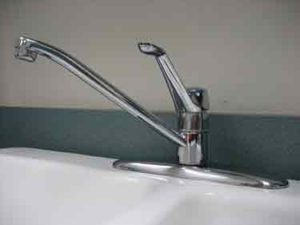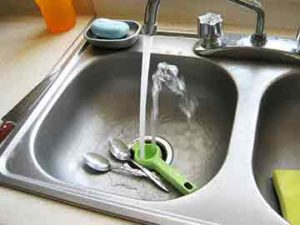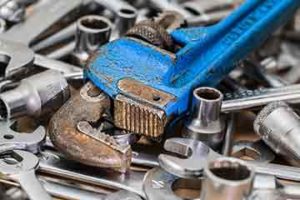 When you own a rental property, one thing that becomes a fixture of your life is emergency calls from tenants. These can happen at the most inconvenient times, like on weekends or in the middle of the night. But finding ways to solve these tenant issues and doing it efficiently is part of the job of being a landlord.
When you own a rental property, one thing that becomes a fixture of your life is emergency calls from tenants. These can happen at the most inconvenient times, like on weekends or in the middle of the night. But finding ways to solve these tenant issues and doing it efficiently is part of the job of being a landlord.
However, if you can also minimize the issues, it can make your life easier and your tenants’ experience of living in the property a lot more pleasant. The way to do this is by creating a plan for preventive maintenance, doing repairs professionally, and demanding accountability from your tenants.
One of the areas where you need to do this is with plumbing issues, particularly clogged pipes. This is something you can expect to happen fairly often in a rental property. Resolving the difficulties that result from clogged pipes can be a significant drain on your time. This article explains the steps you can take to make dealing with this issue less problematic.
What causes clogged pipes?
There are two primary causes of clogged pipes. Pipes may get clogged because of something a tenant is doing. Pipes may also get clogged from normal use or natural causes. Knowing the root of the problem is important for assigning financial responsibility for fixing the problem. It can also help you take the right steps to prevent future occurrences.
When a pipe is clogged due to tenants’ actions, it is usually because the tenant did at least one of these:
- The tenant has been allowing hair, dirt, oil, fat, grease, and food waste to get into the drain.
- The tenant has allowed soap scum to build up in drainpipes. Combined with hair, dirt, or grease can reduce the diameter of pipes or even block them.
- The tenant has flushed diapers, wipes, small objects, tampons, or cat litter down the drain.

Pipe clogs that are unrelated to a tenant’s actions may be caused by:
- Mineral buildup – this is very common in areas where the water is hard.
- Offset pipes – these are the result of small shifts in the ground or foundation settlement.
- Tree root intrusion – tree roots can work their way into the tiniest crack in a pipe and block it.
How to handle clogged pipes in a rental property
The steps you take to solve the problem will partly depend on the source of the issue. Also, the solutions may be preventive or corrective. Lastly, you have to define your role versus the tenant’s role and ensure the tenant has everything they need (the information and tools) to be able to play their part.
Here are the steps you should take to deal with clogged pipes in your rental property.
Preventive steps
These are mostly things you do as the owner of the property.
- Include a plumbing clause in the lease agreement
Include rules that explicitly spell out how the tenant should treat the plumbing. The document should explain the consequences if the tenant fails to follow the rules.
- Treat pipes regularly
To keep pipes from clogging, make treating them with an enzyme-based drain buildup remover part of your plumbing maintenance routine. This will break down grease in order to keep pipes free of debris.
- Upgrade vent pipes
Vent pipes help maintain proper air pressure inside pipes so water can flow freely. If the vent pipe is clogged, uncapped, or inadequate, it won’t do its work and pipes will get clogged.
- Maintain your septic system
If septic systems don’t handle wastewater efficiently, it can lead to sewer line backups. Sewer water will work its way back into pipes and block them. Give septic tanks an enzyme treatment occasionally.
- Purchase a home warranty
Buying a home warranty will not prevent clogged pipes but it will ensure that if they do happen, you won’t have to pay a lot of money to fix the problem.
Corrective steps

These are things you and the tenant can do:
- Get the right tools
If you properly educate your tenant on the right procedures for handling minor issues, he or she won’t need to call you when those small issues occur. But to make this possible, you must give your tenants the right tools.
For instance, depending on whether they are dealing with a sink or a toilet issue, tenants need a dome or bell plunger. Dome plungers work better with sinks and bell plungers work better with toilets. Along with the plungers, tenants should also have a drain snake close at hand.
- Do not use harsh drain chemicals
Excessive use of drain cleaners will cause your plumbing to deteriorate. Used occasionally, liquid drain cleaners are good for unclogging pipes. In place of these types of products, use baking soda and vinegar.
- Hire a professional plumber
Find a local plumber with whom you can have a standing agreement as the go-to person for all plumbing issues in the rental. This kind of arrangement will cost you less money and stress in the long run.

